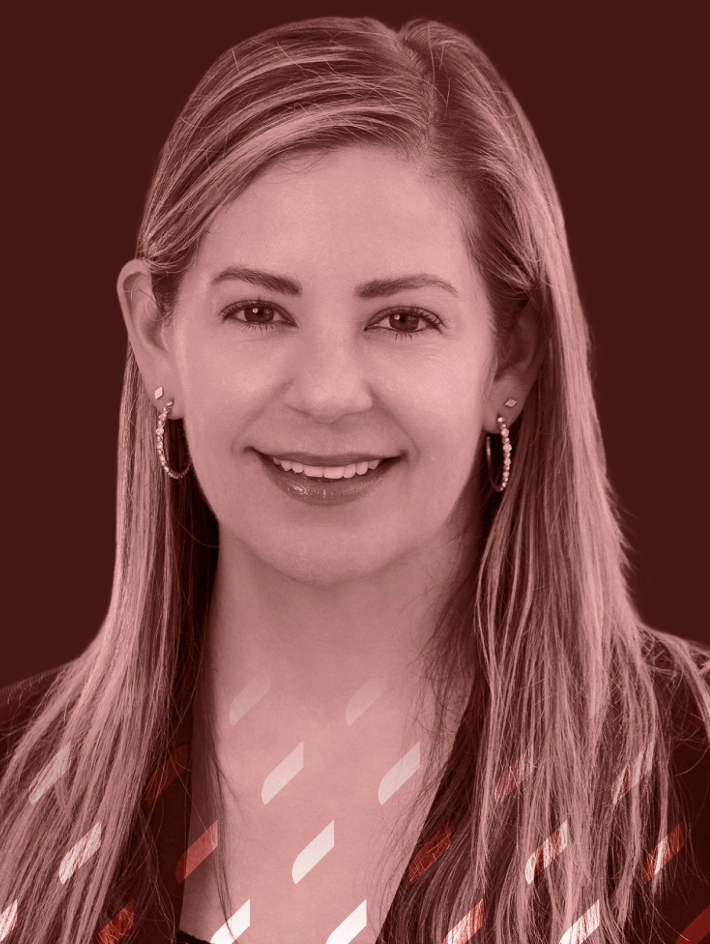Could you share a little bit of your background?
I am the Managing Partner at Detail Commercial Solicitors, where I lead the firm’s Mergers & Acquisition, Private Equity, Capital Markets, and Technology & Digital Economy Practice areas. Over the past 12 years, I have had the privilege of advising a diverse range of clients-from multinational companies to early-stage start-ups- on strategic transactions across various industries.
I earned my law degree from the University of Hertfordshire, UK and went on to obtain a masters in corporate & business law from the University of Central England (now Birmingham City University). Outside of work I enjoy traveling and reading fiction. I am also passionate about mentoring young lawyers.
Can you share an example of professional achievement or success that you are particularly proud of, and how did your gender play a role, if at all, in that accomplishment?
I have been fortunate to experience a rewarding and accelerated career journey—joining DETAIL as an entry-level solicitor in 2016 and rising through the ranks to become Managing Partner by 2025. Along the way, I was honored to be named an Outstanding Young Professional in the 40 under 40 Nigerian Legal Awards (2022) and recognised as a Notable Practitioner in Corporate Commercial and Private Equity by the International Financial Law Review (IFLR) in 2024.
These milestones are deeply meaningful—not just personally, but because they reflect what is possible for women in a profession that remains largely male-dominated at senior levels. I hope they stand as a quiet but compelling proof point that merit, consistency, and authentic leadership can speak louder than gender.
Professionally, I have had the privilege of leading and co-leading several complex private equity transactions involving investors from U.S., U.K., Nigeria, Norway and Ghana amongst others —often under tight deadlines and across multiple regulatory frameworks. Success in those deals required not only legal expertise but also strong people and process management.
Although gender did not affect the execution directly, being one of the few—and sometimes the only—woman in those virtual meeting rooms was not lost on me. In those moments, qualities like empathy, clarity, and sensitivity to nuance were invaluable tools —not just ‘soft skills, but real leadership assets.
What challenges have you faced in your career and how have you overcome them?
One of the biggest challenges I have faced in my career is achieving a balance between the demands of my job and the responsibilities of home and family life. As we know, the legal practice is a demanding boyfriend – it rarely settles for inches but takes the mile often without asking!
There have been seasons of intense transactions, and client expectations; and as a leader, there are times when the hours in the day (and night) simply do not feel enough. What has helped me is learning to prioritize, delegating appropriately and being unapologetic about protecting time for rest, family and reflection.
Importantly, I have come to understand that balance does not mean a 50:50 split between work and life. Recognizing this has helped me identify my high concentration periods and plan my day more intentionally around that. This shift has helped me manage competing demands better and I genuinely believe it has made me a better leader.
What steps can firm leadership take to move from intention to measurable progress on diversity?
In my view, the key to moving from intention to measurable progress on diversity lies with the leadership’s ability (i) to be accountable - both to itself and the members of the firm - and (ii) to drive a change in culture of the firm. The first step is for leadership to clearly define what diversity means to the firm (whether that is race, ethnicity, gender or other dimensions), and to set specific time-bound goals around that definition.
Accountability is intricately tied to goal setting, so it is important to either appoint a ‘champion’ or a dedicated committee with direct reporting line to leadership to ensure that each milestone is tracked and achieved. Cultural change, on the other hand, may require a review of internal policies and an intentional effort to cultivate an inclusive environment for diversity to thrive.
Ultimately, the key to measuring progress is transparency. At DETAIL, we sometimes hold townhall meetings where leadership receives firm-wide feedback on our efforts. These sessions provide a platform to disclose challenges, review progress and identify new strategies for leadership’s consideration.
You are one of the participating in the ‘Why Elevating Women in Law Makes Sense’ panel in Legalink forthcoming General Meeting in Athens – why is this debate important and what topics are most important for you to bring forward there?
In many jurisdictions, the legal profession is predominately male dominated. This debate is particularly important because elevating women in law is not just a moral or social narrative, it makes business sense. According to McKinsey & Company, companies with more women in leadership are 25% more profitable – this reinforces the point that gender-diverse leaderships perform better. Yet, despite this, women continue to be under-represented at law firms (and other sector businesses alike). This panel is an opportunity to highlight the relevance of women in leadership and to focus on the cultural and structural shifts required for women to truly thrive in leadership.
Some of the topics I consider important to bring to the fore is first, we need to shift the narrative on women being in leadership to tick the diversity box, to one that emphasizes how women leaders drive value. Second, we need to push for policy reforms - for pay equity, redefining leadership & flexibility, and promotion transparency. I believe these key topics are strategic priorities for the future of the legal profession.
How can networks like Legalink better support women leaders in emerging markets?
Networks like Legalink have a unique role to play in accelerating the growth of women leaders in emerging markets. Networks have the right platform to champion women by elevating their voices and connecting them globally for cross-border deal flows. In Nigeria, we have a strong example in the Women in Business network (WIMBIZ), which has successfully curated leadership development programs that address the distinct challenges women face in navigating their careers. Networks like Legalink can borrow a leaf from their approach by designing similar initiatives and creating intentional forums, such as the upcoming panel at the General Meeting in Athens, where women can share success stories, build solidarity and accelerate learning. Ultimately, when global networks prioritize inclusion, the ripple effect is powerful - women are empowered, firms are strengthened, and client confidence in the firm deepens.



